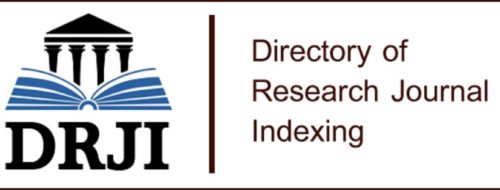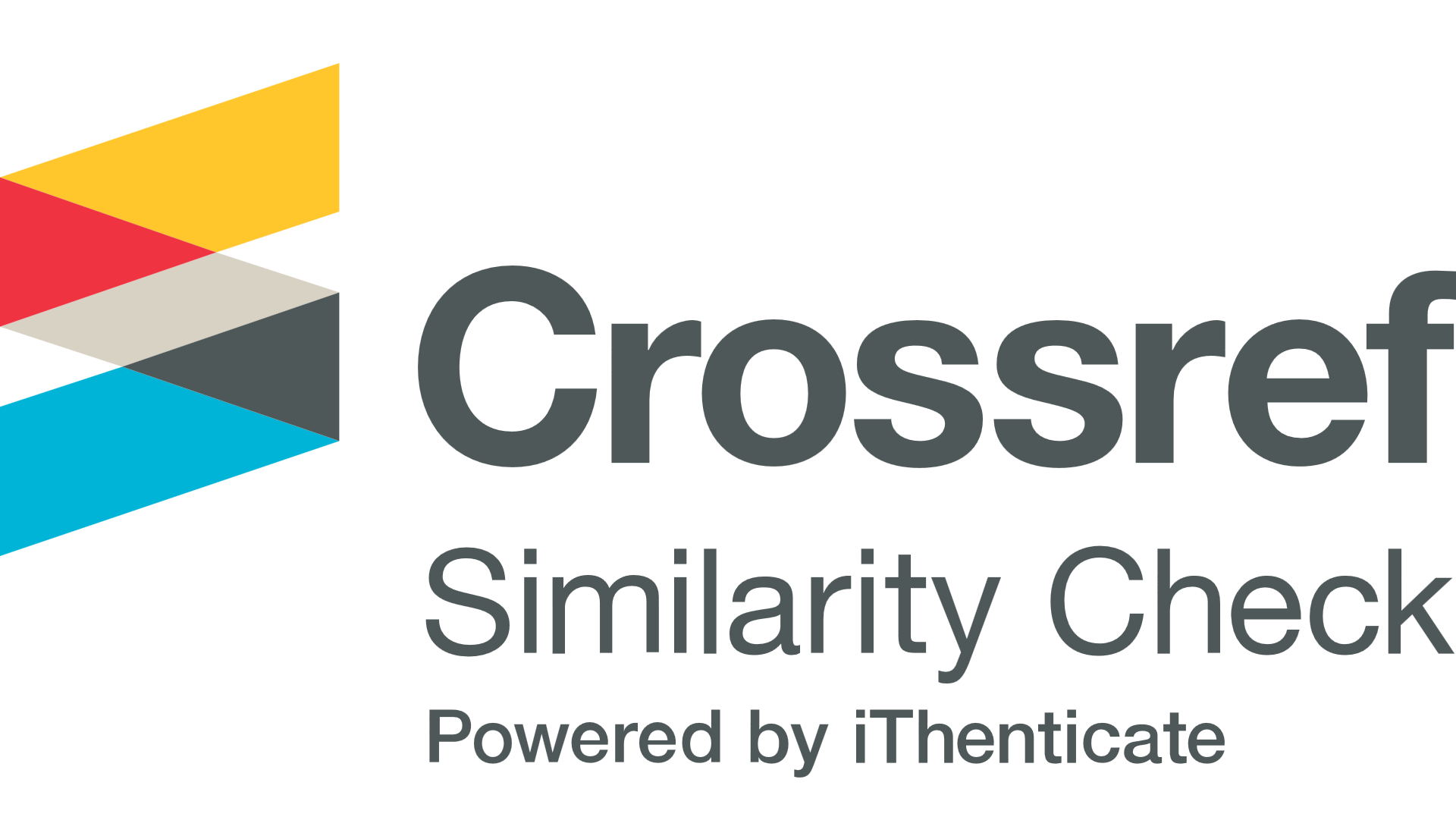CHALLENGES AND OPPORTUNITIES OF ADAPTIVE LEARNING IN MATHEMATICS EDUCATION
Keywords:
Intelligent Tutoring Systems, Individual Differences, Immediate Feedback, 21st Century Skills, Formative EvaluationAbstract
DOI: https://doi.org/10.46296/ig.v8i15.0254
This study examines the challenges and opportunities of adaptive learning in mathematics education through a systematic review of recent literature. The research analyzes the main barriers to effective implementation of adaptive systems, including personalized content design, teacher training, technological infrastructure, and impact assessment. Significant opportunities are identified in terms of learning personalization, improved student engagement, and development of 21st-century skills. Results suggest that adaptive learning has the potential to transform mathematics teaching by addressing math anxiety and improving student motivation. However, its success depends on factors such as adequate teacher training, equitable access to technological resources, and implementation of ethical frameworks for data management. The research highlights the need to develop more sophisticated metrics to evaluate the impact of adaptive learning, considering not only academic performance but also factors such as motivation and the development of transversal skills. It concludes that, despite existing challenges, adaptive learning represents a significant evolution in mathematics education, justifying continued investment in its development and implementation.
Keywords: Intelligent Tutoring Systems, Individual Differences, Immediate Feedback, 21st Century Skills, Formative Evaluation.
References
Adiguzel, T., Kaya, M. H., & Cansu, F. K. (2023). Revolutionizing education with AI: Exploring the transformative potential of ChatGPT. Contemporary Educational Technology, 15(3), ep429. https://doi.org/10.30935/cedtech/13152
Almache Delgado, V. J., Jiménez Añazco, A. M., Calderón González, D. E., & Vásquez Romero, S. F. (2024). Transformación digital en los procesos de aprendizaje de la educación superior. Magazine de las Ciencias: Revista de Investigación e Innovación, 9(2), 47–67. https://doi.org/10.33262/rmc.v9i2.3103
Azúa Menéndez, M., Pincay Pilay, M., & Sornoza- Parrales, D. (2018). El constructivismo y la enseñanza de las matemáticas en el estudiante universitario de salud. Revista Científica Ciencia y Tecnología, 18(19).
Bizarro Flores, W. H., Paucar Miranda, P. J., & Chambi Mescco, E. (2021). Evaluación formativa: Una revisión sistemática de estudios en aula. Horizontes. Revista de Investigación en Ciencias de la Educación, 5(19), 872–891. https://doi.org/10.33996/revistahorizontes.v5i19.244
Calle Chacón, L. P., Garcia-Herrera, D. G., Ochoa-Encalada, S. C., & Erazo-Álvarez, J. C. (2020). La motivación en el aprendizaje de la matemática: Perspectiva de estudiantes de básica superior. Revista Arbitrada Interdisciplinaria Koinonía, 5(1), 488. https://doi.org/10.35381/r.k.v5i1.794
Carvajal Rivadeneira, D. D., Ponce Reyes, F. S., Sornoza-Parrales, D., Pincay Pilay, M., Antonio, Q. S., & Miller Zavala, J. H. (2023). Elementos básicos de la investigación científica: ISBN: 978-9942-846-51-8. EDITORIAL INTERNACIONAL RUNAIKI, 1–75.
Chen, Y. (2019). Effect of Mobile Augmented Reality on Learning Performance, Motivation, and Math Anxiety in a Math Course. Journal of Educational Computing Research, 57(7), 1695–1722. https://doi.org/10.1177/0735633119854036
Chuchuca Tocto, L. D., Vera Pisco, D. G., & Sornoza-Parrales, D. (2025). Estrategias de gamificación aplicadas en matemáticas al desarrollo de competencias digitales a los estudiantes. UNESUM - Ciencias. Revista Científica Multidisciplinaria, 9(1), 16–29. https://doi.org/10.47230/unesum-ciencias.v9.n1.2025.16-29
Correa-Fajardo, A. P., Gómez-Pato, J. Á., & Guzmán-Hernández, R. (2024). La salida profesional de los contenidos de matemática en el bachillerato técnico en la figura profesional de Electromecánica Automotriz. MQRInvestigar, 8(3), 3447–3474. https://doi.org/10.56048/MQR20225.8.3.2024.3447-3474
Dabingaya, M. (2022). Analyzing the Effectiveness of AI-Powered Adaptive Learning Platforms in Mathematics Education. Interdisciplinary Journal Papier Human Review, 3(1), 1–7. https://doi.org/10.47667/ijphr.v3i1.226
Díez-Fonnegra, C. A., & Losada, M. F. D. (2022). THE DEVELOPMENT OF MATHEMATICAL THINKING THROUGH ADAPTIVE EDUCATION: THE CASE OF A LINEAR ALGEBRA COURSE. Vidya, 42(2), 1–23. https://doi.org/10.37781/vidya.v42i2.4205
Drigas, A., & Karyotaki, M. (2014). Learning Tools and Applications for Cognitive Improvement. International Journal of Engineering Pedagogy (iJEP), 4(3), 71. https://doi.org/10.3991/ijep.v4i3.3665
Enríquez Vázquez, L., & Navarro Perales, J. (2024). Explorar los matices: Aprendizaje personalizado y adaptativo en la educación digital. Revista Digital Universitaria, 25(1). https://doi.org/10.22201/cuaieed.16076079e.2024.25.1.10
Flores Abreu, M. A. (2023). Estudios bibliométricos en educación en la base de datos Web of Science: Una mirada cienciométrica. Dialogos Abiertos, 2(2), 9–25. https://doi.org/10.32654/DialogosAbiertos.2-2.2
Giler-Medina, P., & Medina-Gorozabel, G. (2023). Evaluación formativa y aprendizaje colaborativo en Matemática en Básica Superior. Simbiosis Educativa, 2(1), 78–89. https://doi.org/10.60085/se.v2n1a5
Godino, J. D. (2021). De la ingeniería a la idoneidad didáctica en educación matemática. Revemop, 3, e202129. https://doi.org/10.33532/revemop.e202129
González, J. I., & Granera, J. (2021). Entornos Virtuales de Aprendizaje (EVA) para la enseñanza-aprendizaje de la Matemática. Revista Científica de FAREM-Estelí, 49–62. https://doi.org/10.5377/farem.v0i0.11607
Harun, H., Kartowagiran, B., & Manaf, A. (2021). Student Attitude and Mathematics Learning Success: A Meta-Analysis. International Journal of Instruction, 14(4), 209–222. https://doi.org/10.29333/iji.2021.14413a
Hilz, A., Guill, K., Roloff, J., Aldrup, K., & Köller, O. (2023). The relationship between individual characteristics and practice behaviour within an adaptive arithmetic learning program. Journal of Computer Assisted Learning, 39(3), 970–983. https://doi.org/10.1111/jcal.12780
Kuhfeld, M., Soland, J., & Lewis, K. (2022). Test Score Patterns Across Three COVID-19-Impacted School Years. Educational Researcher, 51(7), 500–506. https://doi.org/10.3102/0013189X221109178
Luo, Y. (2024). Revolutionizing education with AI: The adaptive cognitive enhancement model (ACEM) for personalized cognitive development. Applied and Computational Engineering, 82(1), 71–76. https://doi.org/10.54254/2755-2721/82/20240929
Machado Pico, H. A., Sagnay Alvarado, E., Vera Pisco, D. G., & Sornoza-Parrales, D. (2024). Integración Efectiva De Aplicaciones Informáticas Para Potenciar El Aprendizaje De Las Matemáticas En Bachillerato. Revista Científica Sinapsis, 25(2). https://doi.org/10.37117/s.v25i2.1108
Maloney, E. A., Ramirez, G., Gunderson, E. A., Levine, S. C., & Beilock, S. L. (2015). Intergenerational Effects of Parents’ Math Anxiety on Children’s Math Achievement and Anxiety. Psychological Science, 26(9), 1480–1488. https://doi.org/10.1177/0956797615592630
Martín-Núñez, J. L., Fidalgo-Blanco, Á., García Ruesgas, L., & Sein-Echaluce, M. L. (2023). Modelo flexible de aula invertida adaptativa—[Flexible Adaptive flipped classroom model]. Innovación educativa en los tiempos de la inteligencia artificial. Innovación educativa en los tiempos de la inteligencia artificial. Actas del VII Congreso Internacional sobre Aprendizaje, Innovación y Cooperación, CINAIC 2023, Zaragoza, Spain. https://doi.org/10.26754/CINAIC.2023.0124
Mejía, F. J., Valladolid, M. J. C., Parrales, D. R. S., & Pisco, D. G. V. (2024). Gamificación como estrategia didáctica en el proceso de enseñanza y aprendizaje de ecuaciones e inecuaciones: Gamificación como estrategia didáctica. Revista Científica Sinapsis, 25(2).
Mendoza-Lozano, F.-A., Pico-Bonilla, C.-M., & Arias-Velandia, N. (2024). Entorno socioeconómico y resiliencia académica en la educación superior colombiana. Revista Iberoamericana de Educación Superior, 123–140. https://doi.org/10.22201/iisue.20072872e.2024.43.1781
Morocho Palacios, H. F., Cuenca Cumbicos, K. M., & Tapia Peralta, S. R. (2023). El impacto de la gamificación en la motivación y el aprendizaje de los estudiantes de matemáticas de educación básica superior. Ciencia Latina Revista Científica Multidisciplinar, 7(3), 6494–6505. https://doi.org/10.37811/cl_rcm.v7i3.6650
Naranjo Sagñay, W. C., Contreras Sánchez, E. P., Sornoza-Parrales, D., & Vera Pisco, D. G. (2024). El aprendizaje basado en problemas como estratega didáctica para la enseñanza de límite de función. Revista Científica Sinapsis, 25(2).
Ortiz Diaz, J. A., & Cutimbo Lozano, G. F. (2022). Aprendizaje basado en problemas: Una metodología aplicada a la asignatura universitaria Matemática Básica. Revista Tecnología, Ciencia y Educación, 155–172. https://doi.org/10.51302/tce.2022.820
Parrales Poveda, M. L., Rodríguez Gutiérrez, K. G., Sornoza-Parrales, D. R., & Fienco Parrales, M. J. (2023). Clima Laboral. Factores a considerar en una Institución de Educación Superior.
Parra-Rojas, B. A. (2023). Metodología de aprendizaje adaptativo en el área de las matemáticas. Revista Docencia Universitaria, 24(2). https://doi.org/10.18273/revdu.v24n2-2023003
Peng, H., Ma, S., & Spector, J. M. (2019). Personalized adaptive learning: An emerging pedagogical approach enabled by a smart learning environment. Smart Learning Environments, 6(1), 9. https://doi.org/10.1186/s40561-019-0089-y
Pin Flores, Á. M., Sornoza-Parrales, D., Orejuela Mendoza, I., & Vera Pisco, D. (2024). Uso de Padlet en la Motivación y el Aprendizaje Colaborativo en Ciencias Naturales: Un Estudio Descriptivo en la Educación Básica Superior. Arandu UTIC, 11(2), 1878–1899.
Pizzie, R. G., & Kraemer, D. J. M. (2023). Strategies for remediating the impact of math anxiety on high school math performance. Npj Science of Learning, 8(1), 44. https://doi.org/10.1038/s41539-023-00188-5
Pylypenko, O. S., & Kramarenko, T. H. (2024). Structural and functional model of formation of STEM-competencies of students of professional higher education institutions in mathematics teaching. Journal of Physics: Conference Series, 2871(1), 012004. https://doi.org/10.1088/1742-6596/2871/1/012004
Rachmadtullah, R., Setiawan, B., Wasesa, A. J. A., & Wicaksono, J. W. (2022). Elementary school teachers’ perceptions of the potential of metaverse technology as a transformation of interactive learning media in Indonesia. International Journal of Innovative Research and Scientific Studies, 6(1), 128–136. https://doi.org/10.53894/ijirss.v6i1.1119
Ramani, G. B., Siegler, R. S., & Hitti, A. (2012). Taking it to the classroom: Number board games as a small group learning activity. Journal of Educational Psychology, 104(3), 661–672. https://doi.org/10.1037/a0028995
Ramirez, G., Chang, H., Maloney, E. A., Levine, S. C., & Beilock, S. L. (2016). On the relationship between math anxiety and math achievement in early elementary school: The role of problem solving strategies. Journal of Experimental Child Psychology, 141, 83–100. https://doi.org/10.1016/j.jecp.2015.07.014
Sharma, P. (2024). Revolutionizing Math Education: The Power of Personalized Learning. International Journal For Multidisciplinary Research, 6(2), 16508. https://doi.org/10.36948/ijfmr.2024.v06i02.16508
Tokanov, M., Smagulov, Y., & Temerbekova, A. (2024). DEFINING THE ROLE OF EDUCATIONAL PLATFORMS IN MATHEMATICS IN THE EFFECTIVE TRAINING OF FUTURE MATHEMATICS TEACHERS. National Center for Higher Education Development, 3(47). https://doi.org/10.59787/2413-5488-2024-47-3-31-37
Toktarova, V. (2022). Model of Adaptive System for Mathematical Training of Students within eLearning Environment. International Journal of Emerging Technologies in Learning (iJET), 17(20), 99–117. https://doi.org/10.3991/ijet.v17i20.32923
Valbuena-Duarte, S., Tamara-Gutiérrez, Y., & Berrio-Valbuena, J. D. (2021). Intervención didáctica tecnológica para el estudio de las secciones cónicas basada en el potencial semiótico. Formación Universitaria, 14(1), 181–194. https://doi.org/10.4067/S0718-50062021000100181
Vera Pisco, D., Choez, A. d, & Parraga, A. (2023). Desafíos de la educación matemática en estudiantes universitarios. Revista peruana de investigación e innovación educativa, 3(1), e23643–e23643.
Vera Pisco, D., Sornoza-Parrales, D., Murillo Baque, D. S., & Cobeña Macías, F. M. (2024). Aplicación de las matemáticas en la vida cotidiana con la aplicación del Programa Lingo. Revista peruana de investigación e innovación educativa, 4(1), e26921–e26921.
Vintere, A. (2018). A Constructivist Approach to the Teaching of Mathematics to Boost Competences Needed for Sustainable Development. Rural Sustainability Research, 39(334), 1–7. https://doi.org/10.2478/plua-2018-0001
Wang, I., Wang, A., & Morris, J. (2023). Designing an Educational Online 3D Escape Room: Motivating Learning through Engaging Gameplay. Software Engineering and Applications, 175–183. https://doi.org/10.5121/csit.2023.131716
Wu, S. S., Barth, M., Amin, H., Malcarne, V., & Menon, V. (2012). Math Anxiety in Second and Third Graders and Its Relation to Mathematics Achievement. Frontiers in Psychology, 3. https://doi.org/10.3389/fpsyg.2012.00162
Zain, F. M., Sailin, S. N., Kasim, M., Abdul Karim, A. M., & Zameri, N. N. (2022). Developing an Augmented Reality Immersive Learning Design (AILeaD) Framework: A Fuzzy Delphi Approach. International Journal of Interactive Mobile Technologies (iJIM), 16(11), 65–90. https://doi.org/10.3991/ijim.v16i11.30063
Zenteno Ruiz, F. A., Malpartida Lovatón, R., Albornoz Dávila, V. L., & Rojas, W. (2023). PLATAFORMA KHAN ACADEMY PARA ENSEÑANZA - APRENDIZAJE DE MATEMÁTICA BÁSICA EN ESTUDIANTES UNIVERSITARIOS. Llimpi, 3(1), 30–38. https://doi.org/10.54943/lree.v3i1.243
Zhang, Y., Li, Y., Chu, Z., Pu, J., Zhang, L., & Chen, T. (2023). Learning Mathematics from Examples and by Doing: Enhancing Learning Engagement and Self-efficacy. Advances in Education, Humanities and Social Science Research, 8(1), 58. https://doi.org/10.56028/aehssr.8.1.58.2023
Zhao, C. (2024). Application and Prospect of Artificial Intelligence in Personalized Learning. Journal of Innovation and Development, 8(3), 24–27. https://doi.org/10.54097/nzxx6z36
Zhiyenbayeva, N., Belyanova, E., Petunina, I., Dmitrichenkova, S., & Dolzhich, E. (2021). Personalized Computer Support of Performance Rates and Education Process in High School: Case Study of Engineering Students. International Journal of Engineering Pedagogy (iJEP), 11(2), 135. https://doi.org/10.3991/ijep.v11i2.19451
Published
How to Cite
Issue
Section
License
Copyright (c) 2025 Scientific Journal INGENIAR: Engineering, Technology and Research

This work is licensed under a Creative Commons Attribution-NonCommercial-ShareAlike 4.0 International License.

















